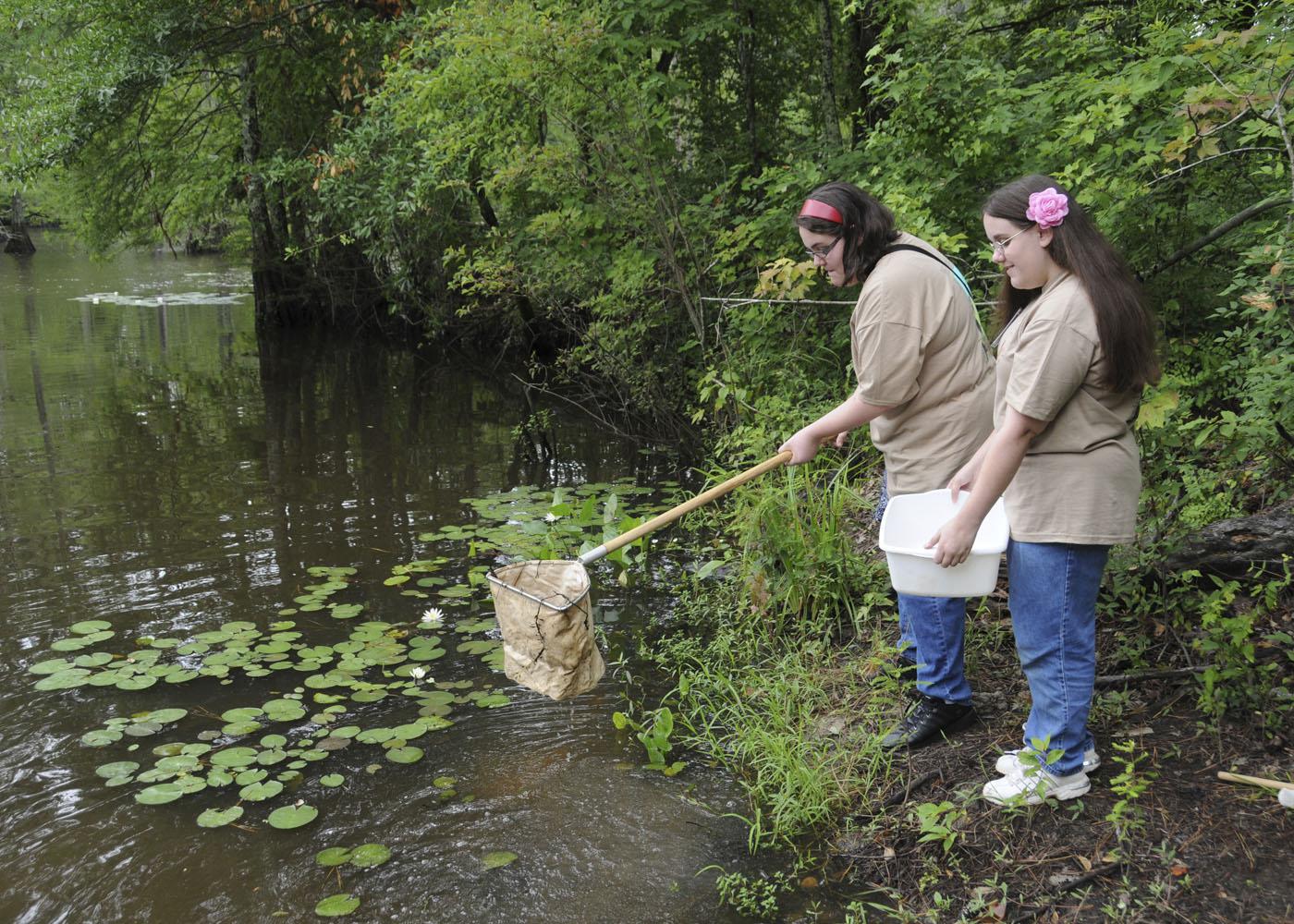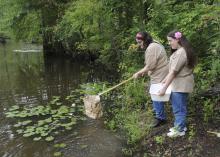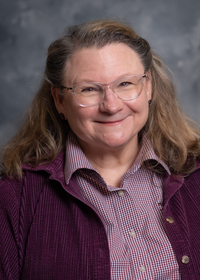Information Possibly Outdated
The information presented on this page was originally released on August 4, 2011. It may not be outdated, but please search our site for more current information. If you plan to quote or reference this information in a publication, please check with the Extension specialist or author before proceeding.
Camp experiences lead coeds into their careers
MISSISSIPPI STATE – Two sisters who like bugs and spiders and getting their hands in dirt found their calling from those activities at summer camps hosted by Mississippi State University.
Breanna and Deanna Lyle, twins from Aberdeen, went to their first “bug camp” in the summer before their 11th grade year. Now, the college sophomores are ahead of many classmates as they pursue careers in entomology and in horticulture.
Patricia Drackett, director of MSU’s Crosby Arboretum in Picayune, said after getting to know the sisters while working at entomology camps, she realized nature and insects were not just a passing interest for them. The Lyles spoke knowledgably about the characteristics and habits of different species.
“A fascination with buzzing, potentially stinging insects might make high school students seem rather unusual. But in the summer bug camps, the twins were totally immersed in their element, along with others who had the same enthusiasm for the subject,” she said.
The camps combine faculty and staff from two MSU departments: the Department of Biochemistry, Molecular Biology, Entomology and Plant Pathology and the Department of Wildlife, Fisheries and Aquaculture. Many of the activities take place on campus in the Clay Lyle Building, where participants work on their insect collections in the labs, hear presentations by the entomology professors, and tour the Entomology Museum and the insect-rearing lab.
“The entomology camp provides great exposure for anyone who might have a spark of interest in a career focused on insects,” Drackett said. “By attending the camp in the context of the university, campers receive invaluable exposure, seeing firsthand exactly where such an interest can lead.”
In recent years, Deanna and Breanna have volunteered at the Crosby Arboretum’s BugFest, an insect event held each September. The girls work alongside MSU faculty and staff members to teach about spiders and insects to hundreds of visitors, particularly elementary school students. They recently assisted at the Arboretum’s Summer Nature Camp.
John Guyton, associate Extension professor of wildlife and fisheries, said even before the camp, the Lyles were well known in their schools and communities for their love of entomology. The camp introduced them to the importance of insect-plant interactions, an important focus of the camp.
“Participants explore the world of insects and plants, and through their camp experiences, Breanna realize she wanted to pursue a career in entomology. Deanna’s love was in plants,” he said. “Many freshmen and sophomore students are still deciding career paths, but the Lyles were sure the first day they stepped on campus.”
Guyton said their camp experiences have impacted courses they have taken in college.
“It’s not unusual for them to take advanced classes normally reserved for seniors and graduate students, then to excel in them,” he said.
The sisters agree they came to camp with a mutual interest in things that crawl, but their academic and career paths have split. Breanna remains interested in entomology and is working in that academic department. She has a special interest in medical entomology and anything with spiders.
“Medical entomology is about how insects impact human health,” Breanna said. “I’m also interested in the taxonomy of jumping spiders. They are very small with large front eyes. They are just about as adorable as they come.”
Deanna, on the other hand, became inspired by a camp speaker with an enthusiasm for horticulture.
“Many of the things I learned at camp have helped me in classes here at State. One example is a plant scavenger hunt that we did in a plant science class,” Deanna said. “We did a similar project at camp, and it was so much fun. Plus, we learned a lot.”
Deanna said camp professors are “helpful, wonderful people” who provide useful information and lay a good foundation for future class work.
“You learn things that can help you, no matter what your career is now or will be in the future,” she said.




